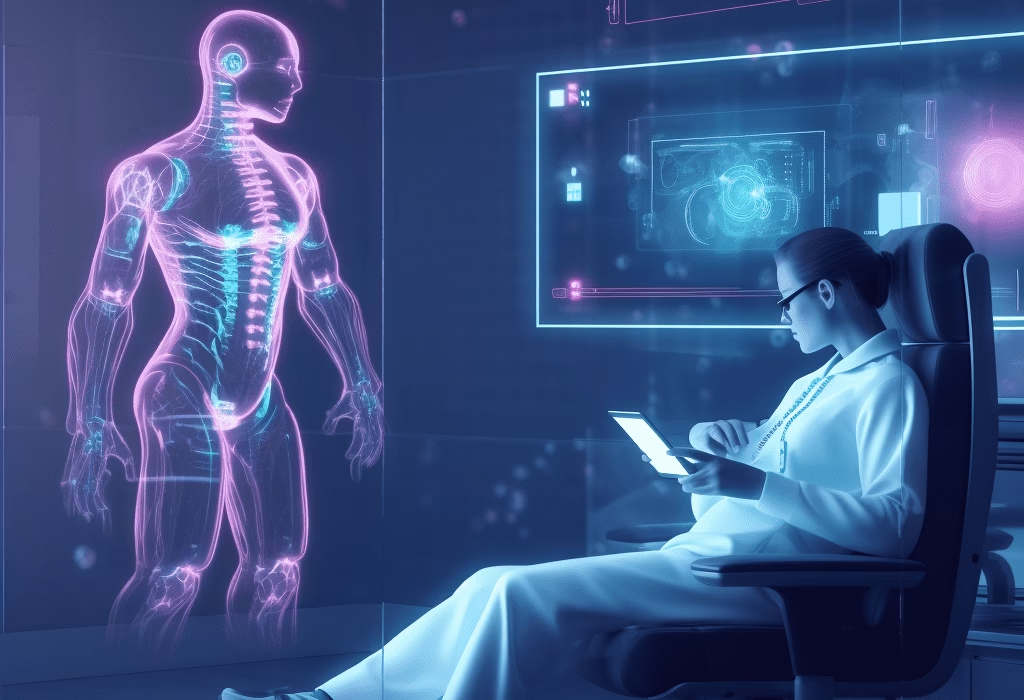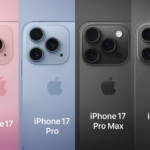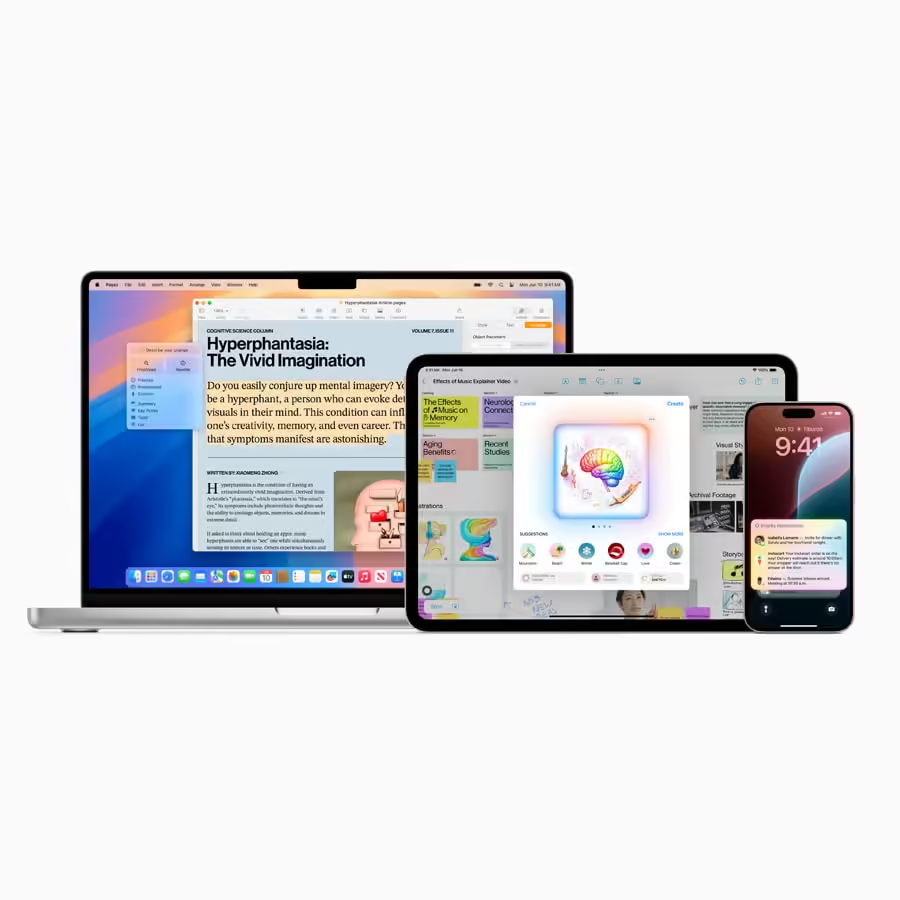“`html
The Dawn of AI-Driven Healthcare
Estimated reading time: 10 minutes
Key Takeaways
- The year 2025 is poised to be a landmark year for healthcare, driven by rapid technological advancements, especially in AI, as predicted by top technology trends 2025.
- AI advancements in precision medicine 2025 are at the forefront, promising to revolutionize patient care through personalized treatments.
- Understanding the synergy between AI and other breakthrough technologies 2025 is crucial for grasping the future of healthcare.
- The integration of AI in healthcare 2025 is expanding beyond diagnostics and treatment to encompass administrative efficiency and patient support.
- The healthcare industry is experiencing an unprecedented pace of change, with AI spearheading the evolution towards more precise and personalized medicine.
Table of contents
- The Dawn of AI-Driven Healthcare
- Understanding Precision Medicine and AI’s Current Role
- Key AI Advancements in Precision Medicine for 2025
- The Broader Technological Landscape in Healthcare 2025
- Emerging Breakthrough Technologies and Their Synergy with AI
- The Evolving Landscape of AI in Healthcare Beyond Precision Medicine
- The Future Vision: A Converged Healthcare Ecosystem
- Final Thought
The healthcare industry is on the cusp of a profound transformation, accelerated by the relentless march of technological innovation. As we look towards 2025, the landscape is being reshaped by a confluence of groundbreaking advancements, with Artificial Intelligence (AI) emerging as a central catalyst. The anticipation for top technology trends 2025 highlights a year of significant shifts, and nowhere is this more evident than in the realm of healthcare. At the heart of this revolution lies the promise of AI advancements in precision medicine 2025, a paradigm shift that moves away from generalized treatments towards highly individualized care plans. This post aims to illuminate the key breakthrough technologies 2025 that are set to redefine healthcare, with a particular focus on the multifaceted impact of AI. The increasing integration of AI in healthcare 2025 is not merely an incremental improvement; it represents a fundamental re-imagining of how we prevent, diagnose, and treat diseases. The healthcare industry in 2025 is characterized by an unprecedented pace of change, with AI at the vanguard of this progress, particularly in shaping the future of precision medicine. This is a pivotal moment, where data-driven insights and intelligent algorithms are converging to unlock new possibilities in patient care.
Understanding Precision Medicine and AI’s Current Role
At its core, precision medicine is a revolutionary approach to healthcare that diverges from the traditional one-size-fits-all model. Instead, it tailors medical care to the unique characteristics of each individual, taking into account their distinct genetic makeup, lifestyle factors, and personal health history. This individualized approach aims to deliver the right treatment to the right patient at the right time, thereby maximizing efficacy and minimizing adverse effects.

Several key factors are converging to accelerate the adoption and amplify the impact of precision medicine. Falling costs associated with genome sequencing have made it more accessible than ever, leading to a proliferation of genomic data. Simultaneously, the growth of biobanks, which store biological samples and associated data, has created vast repositories of valuable information. Complementing these developments are increasingly sophisticated AI tools, which are essential for navigating and extracting meaningful insights from the immense and complex datasets generated by genomic and clinical studies. This powerful combination is driving significant advancements in the field.
Currently, AI is playing a crucial role in various aspects of precision medicine. AI algorithms are adept at processing and analyzing colossal volumes of genomic and clinical data. This capability allows them to:
- *Identify subtle patterns and correlations that may indicate an increased risk for specific diseases.*
- *Optimize treatment strategies by predicting which therapies are most likely to be effective for a given patient based on their unique biological profile.*
- *Predict health outcomes with greater accuracy, enabling proactive interventions and better management of chronic conditions.*
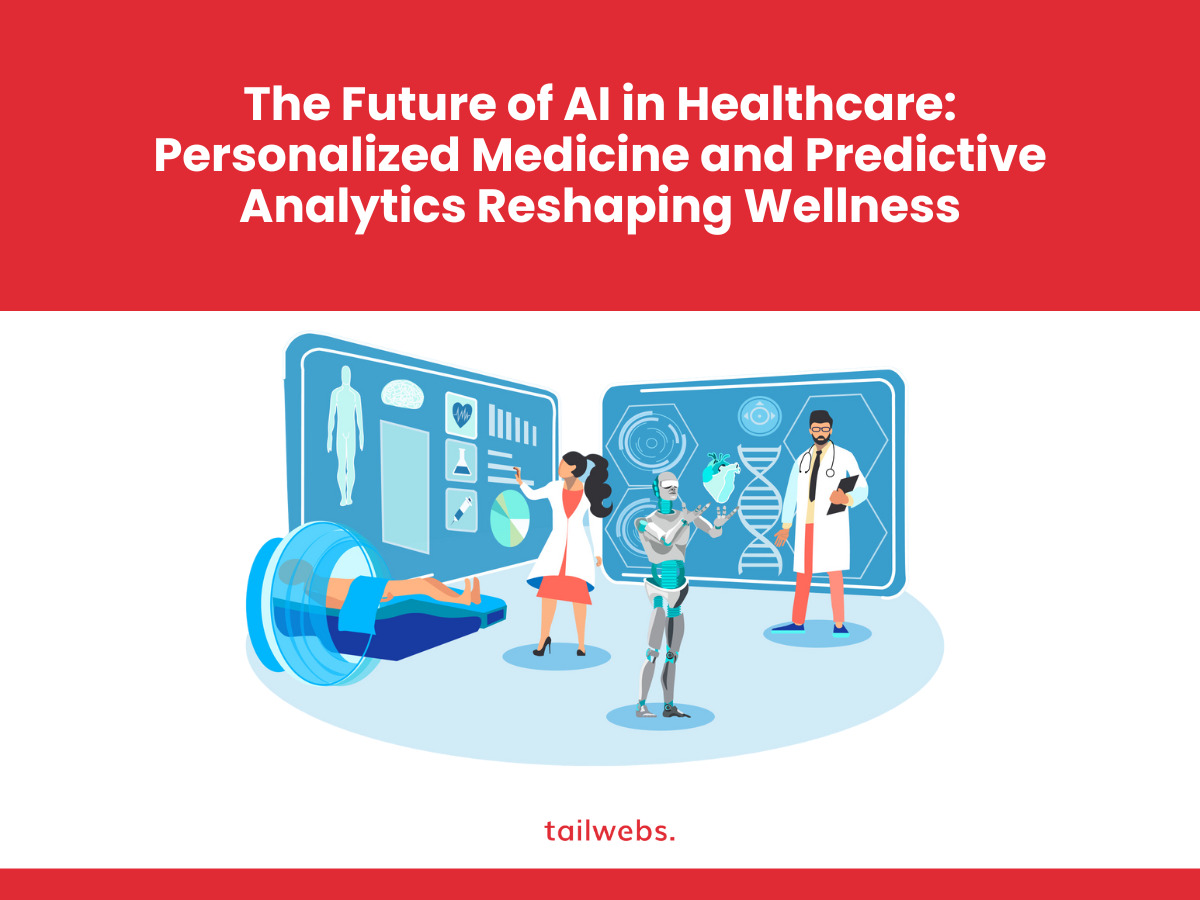
The ability of AI to sift through data at a scale and speed impossible for humans is what makes it an indispensable partner in the pursuit of truly personalized healthcare. Its current role is foundational, laying the groundwork for even more advanced applications in the near future.
Key AI Advancements in Precision Medicine for 2025
As we move into 2025, several key AI advancements in precision medicine 2025 are expected to mature or emerge, further solidifying AI’s role in transforming patient care. These advancements promise to enhance both the predictive and therapeutic capabilities within healthcare.
Predictive Analytics for Disease Risk
AI algorithms are becoming increasingly powerful in forecasting disease progression and identifying individuals at high risk for specific conditions. By analyzing a combination of genetic predispositions, lifestyle data, and historical health records, these algorithms can provide early warnings. This enables healthcare providers to implement early, preventive interventions, which are often more effective and less costly than treating advanced diseases. This is a critical area where AI advancements in precision medicine 2025 and AI in healthcare 2025 are making a tangible difference in proactive health management. The ability to predict risk empowers both patients and clinicians to take timely steps towards maintaining well-being.
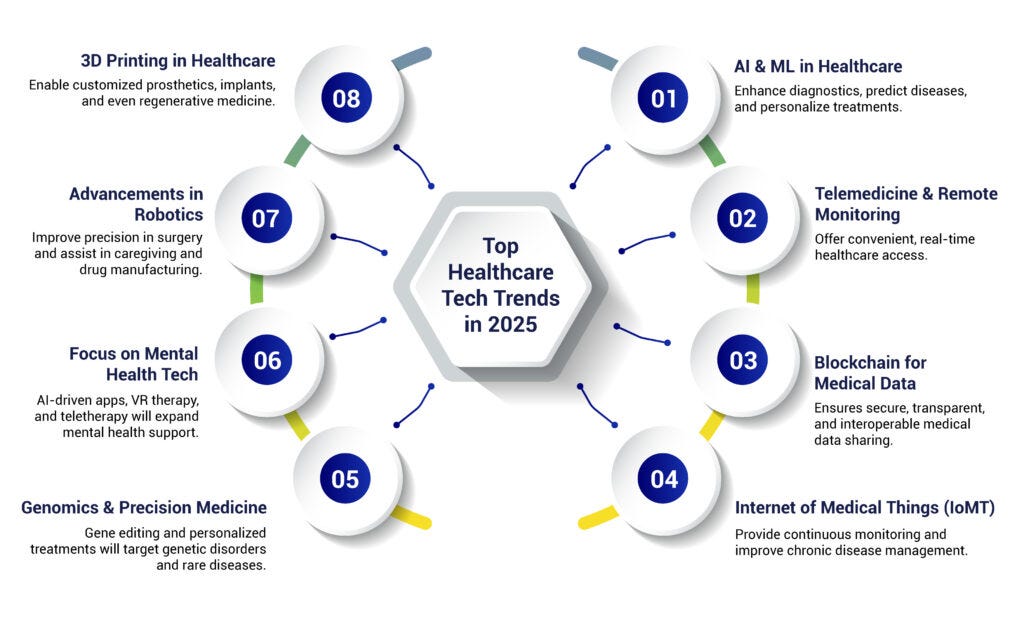
AI-Powered Diagnostic Imaging Analysis
Machine learning-driven tools are significantly enhancing the accuracy and speed of diagnoses, particularly in radiology and pathology. These AI systems can detect subtle anomalies in medical images that might be missed by the human eye, leading to earlier and more precise diagnoses. This is particularly impactful in complex areas like cancer detection, where early identification is crucial for successful treatment, and in diagnosing rare diseases that often present with ambiguous symptoms. For instance, AI has demonstrated remarkable diagnostic accuracy, such as achieving 88% diagnostic accuracy in bone metastasis prediction. This advancement in AI advancements in precision medicine 2025 and AI in healthcare 2025 is transforming diagnostic workflows and improving patient outcomes by ensuring faster and more reliable identification of disease.
Personalized Drug Development and Efficacy Prediction
The process of drug discovery and development is notoriously long, expensive, and prone to failure. AI is revolutionizing this by rapidly screening vast molecular libraries to identify promising drug candidates. Furthermore, AI can predict the potential effectiveness of these drug candidates and tailor therapies based on an individual’s genetic markers and disease profile. This means that treatments can be designed with a higher probability of success for specific patient subgroups. Innovative drug discovery for challenging diseases, such as pancreatic cancer, is being accelerated by AI. These AI advancements in precision medicine 2025 and AI in healthcare 2025 promise to bring more targeted and effective medications to patients faster.
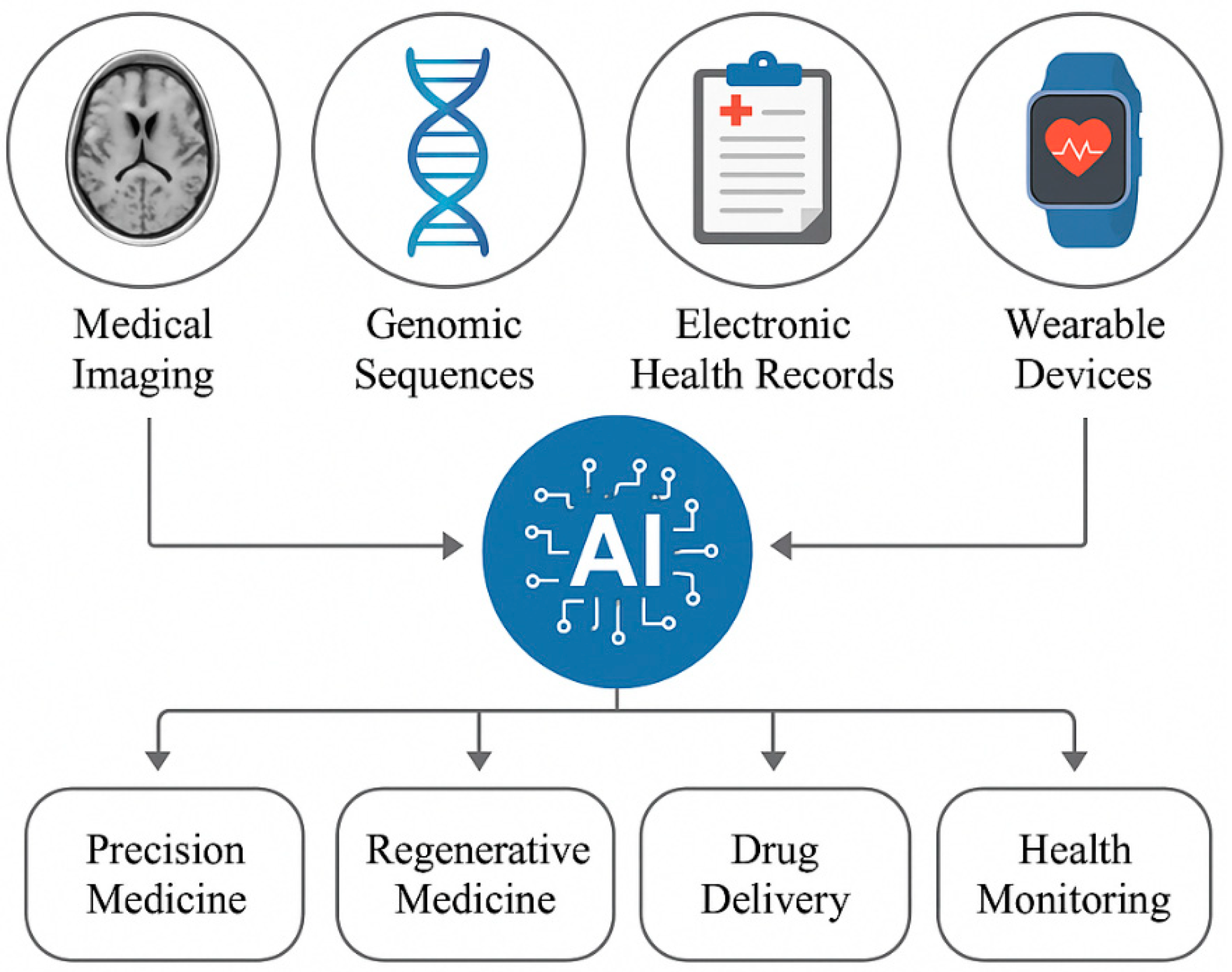
AI for Optimizing Clinical Trials
Clinical trials are a critical bottleneck in bringing new treatments to market. AI can significantly optimize this process by improving trial design and patient recruitment. AI algorithms can help identify and match the most suitable patients for specific studies based on complex criteria, increasing the likelihood of successful trial outcomes. This not only accelerates the drug approval process but also ensures that the right patients benefit from potentially life-saving experimental therapies. By making clinical trials more efficient, AI contributes to the faster delivery of innovations to those who need them. This integration of AI advancements in precision medicine 2025 and AI in healthcare 2025 is a vital step towards a more responsive pharmaceutical pipeline.
The Broader Technological Landscape in Healthcare 2025
While AI is a dominant force, its impact on healthcare in 2025 is amplified by its synergy with other significant technological trends. These interconnected advancements are collectively shaping a more intelligent, personalized, and efficient healthcare ecosystem.
Genomics and Multi-omics Powered by AI
The era of high-throughput sequencing has unlocked unprecedented access to genomic data. AI is indispensable in analyzing this vast amount of information, as well as data from other “omics” fields like proteomics and metabolomics. By integrating and analyzing these complex multi-omics datasets, AI can identify novel biomarkers for disease detection and progression, as well as uncover new therapeutic targets that were previously hidden within the data. This deep dive into an individual’s biological blueprint, powered by AI, is fundamental to truly personalized medicine. The synergy between top technology trends 2025 and AI in healthcare 2025 is particularly evident here.

Wearable Technology and Remote Patient Monitoring
The proliferation of wearable devices and the advancements in remote patient monitoring systems are generating continuous streams of real-time health data. This data, ranging from heart rate and sleep patterns to glucose levels and activity, feeds directly into AI models. AI can then perform dynamic risk stratification, identifying subtle changes that might indicate an emerging health issue. This allows for continuous, personalized monitoring outside of traditional clinical settings, enabling proactive interventions and better management of chronic conditions. This integration represents a key aspect of top technology trends 2025 and AI in healthcare 2025, shifting care towards a more continuous and preventative model.
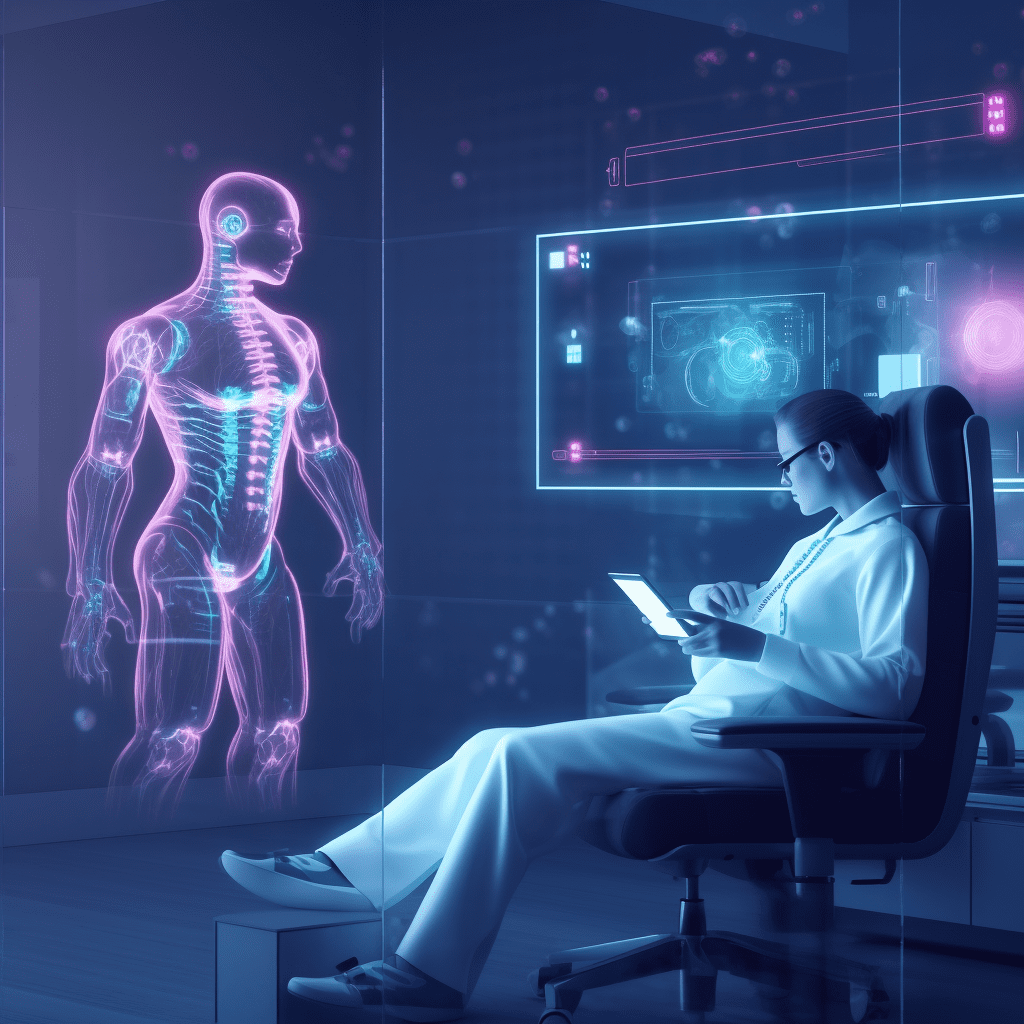
Big Data Analytics
The sheer volume, velocity, and variety of health data generated today—from electronic health records (EHRs) and genomic databases to wearable sensors and imaging—make Big Data Analytics an essential component of modern healthcare. AI thrives on this data. The ability to integrate and analyze these vast, diverse datasets is critical for training robust AI models that can generate precise and actionable health insights. Without sophisticated Big Data Analytics capabilities, the potential of AI in healthcare would remain largely untapped. This underlines the importance of top technology trends 2025 and AI in healthcare 2025 working in tandem.
Personalized Health Platforms
AI is also driving the development of personalized health platforms—digital ecosystems that provide patients and healthcare providers with actionable, customized recommendations. These platforms can integrate data from various sources, including EHRs, wearables, and patient-reported outcomes, to offer tailored advice on diet, exercise, medication adherence, and disease management. By facilitating continuous engagement and informed decision-making, these AI-driven platforms are crucial for empowering patients and enhancing the overall continuity of care. This trend is a prime example of how top technology trends 2025 and AI in healthcare 2025 are converging to create a more patient-centric healthcare experience.

Emerging Breakthrough Technologies and Their Synergy with AI
Beyond the more established trends, several nascent breakthrough technologies 2025 are poised to dramatically amplify AI’s capabilities in healthcare. The synergy between these emerging fields and AI promises to unlock entirely new frontiers in medical science and patient care.
Deep Dive into Quantum Computing in Life Sciences 2025
Quantum computing represents a paradigm shift in computational power, utilizing the principles of quantum mechanics to process information in ways that are fundamentally impossible for classical computers. In the context of life sciences, this has profound implications. Quantum computers can tackle immensely complex biological data processing tasks at speeds that far exceed current capabilities. This includes revolutionizing intricate biological simulations, such as accurately modeling protein folding—a critical process in understanding disease mechanisms and designing drugs. Quantum computing’s ability to explore vast chemical spaces also promises to accelerate the discovery of novel drug candidates with optimized properties, potentially leading to entirely new classes of medicines. The synergy with AI is particularly exciting: quantum computing can enhance AI-driven analytics by enabling deeper interpretation and manipulation of complex biological systems. While the integration of quantum computing into mainstream AI applications is still in its early stages, its potential to supercharge AI’s problem-solving capacity in areas like drug discovery and personalized medicine is immense. This represents a truly disruptive force among breakthrough technologies 2025 and quantum computing in life sciences 2025.

The Evolving Landscape of AI in Healthcare Beyond Precision Medicine
While precision medicine is a major focus, the impact of AI in healthcare 2025 extends far beyond personalized treatments, touching nearly every facet of the healthcare system.
AI in Administrative Tasks and Operational Efficiency
The administrative burden in healthcare is substantial, often consuming valuable resources and detracting from direct patient care. AI is poised to significantly streamline these workflows. By automating tasks such as appointment scheduling, billing, and insurance pre-authorization, AI frees up healthcare professionals to focus on patient interaction. Furthermore, AI can optimize resource allocation within hospitals, predict patient flow to reduce wait times, and automate various back-office processes. This leads to substantial improvements in the overall efficiency and cost-effectiveness of healthcare systems. This application of AI in healthcare 2025 and breakthrough technologies 2025 directly addresses operational challenges.
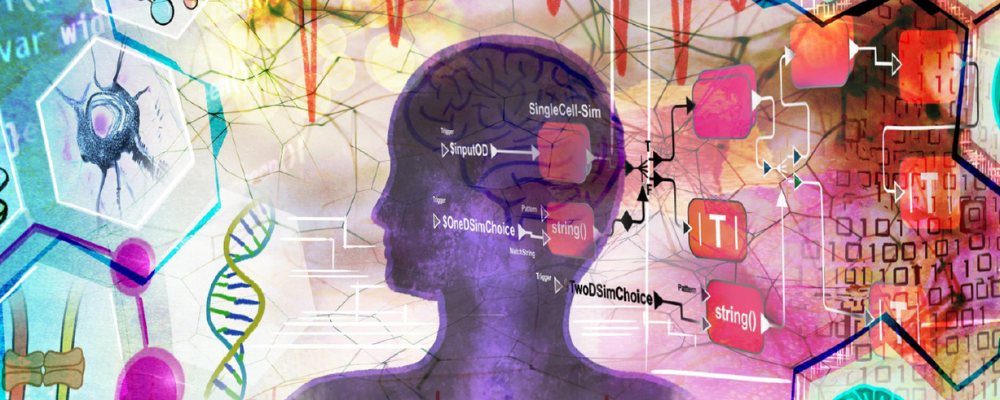
AI-Powered Virtual Health Assistants and Chatbots
The demand for accessible and immediate health information and support is growing. AI-powered virtual health assistants and chatbots are emerging as a key solution. These tools can provide 24/7 patient support, answering common health queries, assisting with initial symptom triage, and guiding patients to appropriate care resources. They can also help manage chronic conditions by sending medication reminders and providing educational content. This not only improves patient engagement but also alleviates the load on human healthcare providers for routine inquiries. This is a prime example of AI in healthcare 2025 enhancing patient access and experience.

Ethical, Regulatory, and Privacy Considerations
As AI becomes more deeply embedded in healthcare, addressing the associated ethical, regulatory, and privacy considerations is paramount. Challenges include managing algorithmic bias to ensure equitable care for all patient populations, maintaining transparency in AI decision-making, and robustly safeguarding sensitive patient data against breaches and misuse. Establishing clear regulatory frameworks and ethical guidelines is crucial for building trust and ensuring that AI is deployed responsibly. The responsible integration of AI in healthcare 2025 and breakthrough technologies 2025 requires careful attention to these critical aspects to ensure patient safety and privacy.

The Future Vision: A Converged Healthcare Ecosystem
Looking ahead, the convergence of various technological advancements is painting a compelling picture of the future of healthcare. The integration of AI advancements in precision medicine 2025 with other breakthrough technologies 2025, such as quantum computing, is fundamentally reshaping healthcare. This transformation is steering the industry towards a model that is not only more predictive and personalized but also increasingly focused on prevention. The ability to analyze complex biological data with AI, augmented by the computational power of quantum systems, allows for a deeper understanding of disease at an individual level, paving the way for highly tailored interventions.
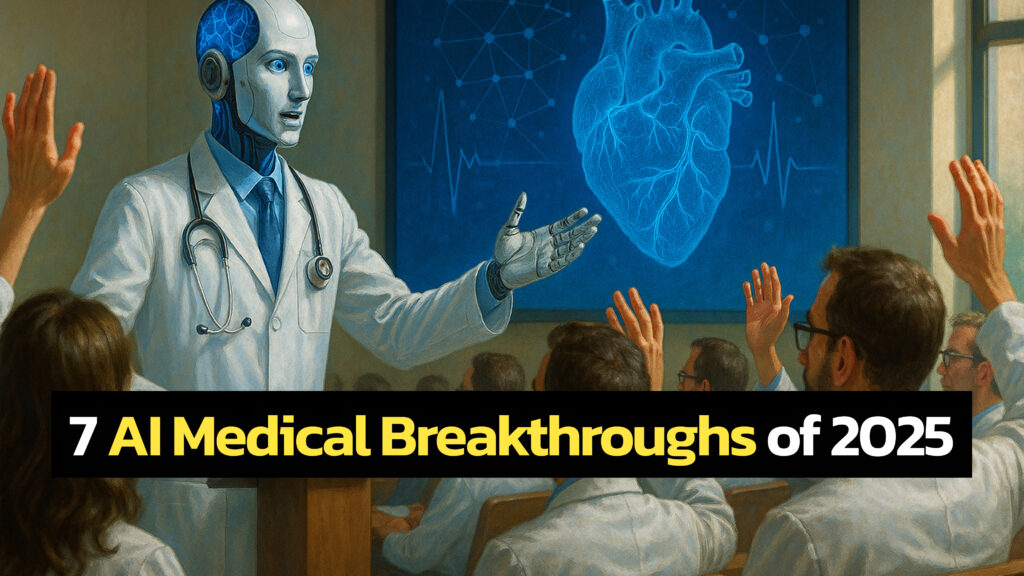
The transformative potential of these advancements for improving patient outcomes and enhancing healthcare system efficiency is immense. However, realizing this potential requires a continuous commitment to ethical safeguards and the indispensable element of human oversight. As these technologies mature, it is vital that they are deployed in a manner that prioritizes patient well-being, equity, and trust. The future of healthcare, driven by AI and emerging technologies, promises a more proactive, precise, and effective approach to health and well-being for individuals worldwide.
Final Thought
AI-powered precision medicine, fortified by comprehensive multi-modal data integration and amplified by cutting-edge technologies like quantum computing in life sciences 2025, is rapidly establishing new benchmarks for personalized care. It facilitates earlier disease intervention, enables the development of precisely tailored therapeutics, and fosters a deeper understanding of individual health trajectories. The continuous evolution of AI advancements in precision medicine 2025 and AI in healthcare 2025, coupled with innovations in areas such as quantum computing, is creating a robust technological ecosystem.

As this ecosystem matures through 2025 and beyond, its positive impacts on patient health, the efficiency of healthcare systems, and the pace of scientific discovery are becoming increasingly visible and transformative. Staying informed about these critical developments is essential for anyone involved in or impacted by the future of healthcare.
“`


